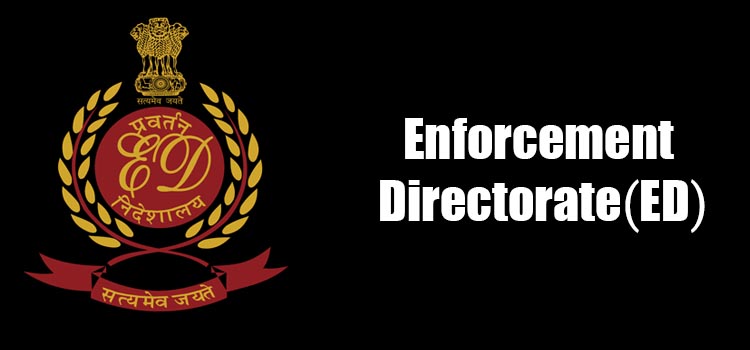How to Make Complaint to Enforcement Directorate? - Find Out
Posted On : September 15, 2022

Table of Contents
ED or the Enforcement Directorate is recently in the limelight since its clutches are expanding towards big political leaders in India. But do you know what is ED Department?, how Enforcement Directorate works?, and most importantly how to make complaint to Enforcement Directorate?.
The Directorate of Enforcement or Enforcement Directorate or ED is a central agency which was established as an ‘Enforcement Unit’ under the Department of Economic Affairs in 1956 for handling violations under Foreign Exchange Regulation Act,1947 (FERA). Later in 1960, it was shifted under the Department of Revenue for administration. Since FERA is repealed, powers of Enforcement Directorate are practised for violations under FEMA, PMLA and COFEPOSA. Find out how Enforcement Directorate works in the blog below. This will also give readers a clear idea on How to report to ED in India and what matters are taken up by the department.
Economic Laws Postulating Powers of Enforcement Directorate
Laws whose violation may be the subject of ED online complaint or offline are both civil and criminal in nature. Powers of ED in such cases vary based on the legal violation in particular. If you are under the clutches of Directorate of Enforcement for a matter of money laundering, a criminal lawyer in Kolkata may help out for Kolkata matters Kolkata to understand the legal pathway to be followed further. However, matters related to foreign exchange are civil in nature and thus, require legal assistance accordingly.
Prevention of Money Laundering Act, 2002 (PMLA)
Matters under the PMLA are criminal in nature, and therefore, proceedings take place in criminal courts of law. Thus, while a matter is brought before the court, criminal lawyers can help with legal representation. The objective of this law is to prevent money laundering in India. The term ‘money laundering’[1] can be understood as the activity connected with the proceeds of a crime which is ultimately shown to be untainted/ genuine. The powers of ED under PMLA include conducting investigation, provisionally attaching the property, prosecution of the offenders, confiscation of property related to money laundering, etc.
Foreign Exchange Management Act, 1999 (FEMA)
Matters related to paying or receiving foreign currency (that other than Indian currency) in any form by an unauthorised person are said to be illegal under the FEMA. The law was brought after repealing the Foreign Exchange Regulation Act, 1973 (FERA) in 1999. It is a civil law whereby the accused persons are represented in courts through civil lawyers. It is aimed at facilitating external trade and payments, eventually regulating foreign exchange market in India. Powers of the Enforcement Directorate under the Act involve conducting investigation into suspected contraventions, adjudicating and imposing penalties against persons defying the provisions of FEMA.
Fugitive Economic Offenders Act, 2018 (FEOA)
Territorial jurisdiction is a fine escape for offenders who leave the country and start afresh in a foreign land. However, FEOA is a daunting law for such economic offenders. In such cases, the Directorate of Enforcement is empowered to attach and also provide for confiscation of properties to the Central Government.
Conservation of Foreign Exchange and Prevention of Smuggling Activities Act, 1974 (COFEPOSA)
The law under COFEPOSA employs powers of Directorate of Enforcement for preventive detention of persons defying FEMA provisions and smuggling activities.
How to Make Complaint to Enforcement Directorate (ED)?
Matters under the above laws are taken up by the Directorate of Enforcement (ED) for the purpose of investigation and sometimes adjudication as well. However, the agency is not supposed to be contacted directly. This confuses people on how to report to ED in India? For violations of provisions under FEMA or PMLA, the following methods are a way out of ‘how to complaint to Enforcement Directorate’:
1. Complaint through Other Agencies
A person who has information related to some economic offence under any of the PMLA or FEMA provisions may file a police complaint. Not only police, but other investigative agencies can also be contacted. Thus, one may also file a complaint in CBI for economic offences. Such agencies may refer the PMLA and FEMA matters to the Directorate of Enforcement.
2. Complaint to Enforcement Directorate
Economic offences like illegalities in money laundering and foreign exchange can be complained about to the concerned authorities. For that matter, people usually do not know how to contact Enforcement Directorate. The answer to ‘how to make complaint to Enforcement Directorate?’ lies with the address and ED complaint email ID provided below.
Contact Details of Enforcement Directorate
Joint Director (Intelligence)
Headquarters Office
Directorate of Enforcement
Pravartan Bhawan, APJ Abdul Kalam Road
New Delhi – 110 011
ED Complaint Email ID: [email protected]
Enforcement Directorate Contact No. - 011- 2333 9124
What are the Powers of Enforcement Directorate?
- Collection, development and dispersal of intelligence for violations under the FEMA, 1999. Intelligence inputs are received through various sources such as the Intelligence agencies of Centre as well as States, complaints, etc. Thus, suo motu, i.e. voluntary action by agency is beyond the powers of Directorate of Enforcement.
- Investigation of suspected activities such as “hawala” or foreign exchange racketeering, unrealized export proceeds, destroyed foreign exchange, etc. in pursuance of violation of FEMA provisions.
- Decision making as per applicable laws (adjudication) on cases of violations of the repealed The Foreign Exchange Regulation Act, 1973 (FERA) and existing FEMA, 1999.
- Realisation of penalties/ punishments imposed at the time of winding up the proceedings of matters under FEMA and PMLA.
- Disposal and recommendation of cases for preventive detention under the Conservation of Foreign Exchange and Prevention of Smuggling Activities Act (COFEPOSA).
- Shouldering search, seizure, arrest, prosecution, etc. activities against an offender under PMLA.
- Dispensing and seeking legal assistance through contracting states with respect to attachment and confiscation of proceeds of a crime and also related to the transfer of accused persons under PMLA.
[1] Section 3 of Prevention of Money Laundering Act, 2002.
























